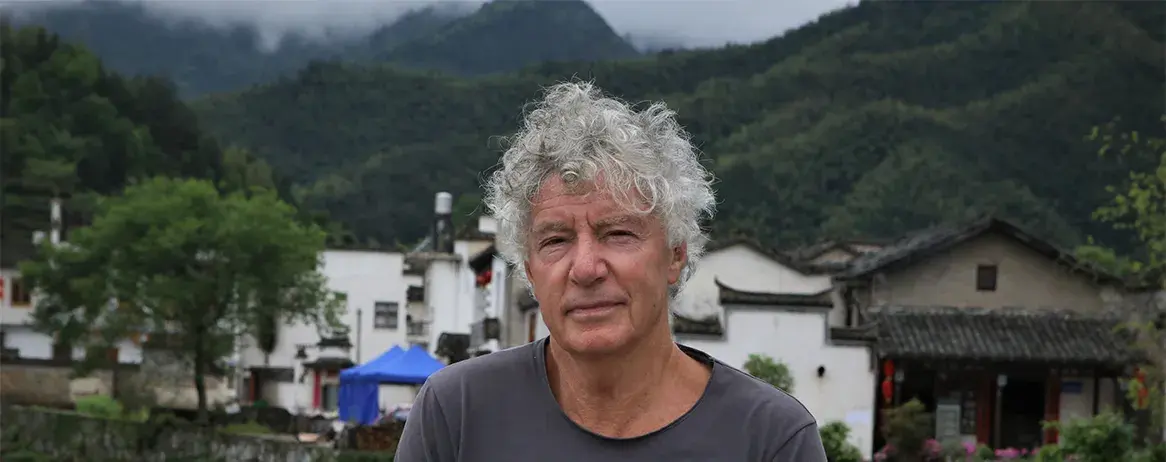
John Keane – Thinking about Democracy
Programme du cycle de conférences Thinking about Democracy
À l’invitation du centre Sorbonne constitutions & libertés de l’ISJPS, John Keane, professeur de science politique à l’Université de Sydney intervient dans le cadre d’un cycle de trois conférences.
1. Thoughts on Uncertainty
Lundi 07/11/2022, 17h30-19h30
There is growing agreement among scholars and citizens that our planet and its peoples are presently living through an era of great political uncertainty. War, pestilence, extreme weather events, species destruction, shrinking US power and the birth of a new Chinese global empire are among the forces said to be responsible for the rising tides of uncertainty. Some observers even speak of a great leap backwards, a regression towards catastrophe, a rebirth of the disquiet and fear that marked the world of the 1920s and 1930s. They are sure that the future will bring only threats, rather than new opportunities to live well. This lecture notes the seriousness of things, but it raises doubts about these pessimistic claims of a new age of uncertainty. Historical comparisons are needed. So is greater clarity about the role played by communicative abundance in inflating our collective sense of doom. And a paradox is noted: calamities do more than stir up questions about how best to classify and measure the experience of uncertainty. Definitions of uncertainty also become uncertain. This should be unsurprising. Only institutions and everyday experiences unaffected by the flow of time could be defined and lived with any certainty. The insight not only has rich implications for the way we think about politics and democracy and its vulnerability to morbid backlashes and yearnings for demagogues. Doubt can generate fresh ideas and positive practical breakthroughs. Disquiet and incertitude are fickle characters, but they are also challengers of all forms of human arrogance, including the dogmatic conviction that our world is now headed for hell.
2. Greening Democracy
Lundi 14/11/2022, 18h-20h
The unparalleled greening of democracy during the past half-century extends well beyond such matters as sustainability and climate justice and is far more consequential than the birth of green parties and policy disputes about carbon pricing schemes and global emissions targets, this lecture proposes. Suggesting a new way of thinking historically about the relationship among ecosystems, energy regimes and democracy, John Keane asks why people with green sympathies might be expected in our times to embrace democracy for more than tactical reasons? Noting a difficulty, that democracy is a deeply anthropocentric norm that has always imagined self-governing humans to be masters and possessors of ‘nature’, he also asks what it would mean to ‘green’ democratic principles and why their redefinition has important practical implications for popular self-government in the age of monitory democracy? Keane emphasises the urgency of addressing these questions, and concludes with a warning: democracies risk democide not only when citizens and their chosen representatives fail to spot the anti-democratic effects of extreme weather events, pestilences and other environmental emergencies but also, just as importantly, when they fail to understand that democracy won’t have a future unless its ideals and practices are rid of the deep-seated prejudice that ‘humans’ live separately from a ‘nature’ whose dynamics are administratively controllable and commercially exploitable for the use and enjoyment of ‘the people’.
3. How Democracies Die, Fast and Slow
Mercredi 16/11/2022, 17h-19h
Pour assister à la conférence en ligne :
https://zoom.univ-paris1.fr/j/93803190357?pwd=T1lOSEF5VEJuQVlKaGFUMVNlbjYyQT09
ID de réunion : 938 0319 0357 | Code secret : 517439
With the fugitive called democracy almost everywhere on the run, the topic of how living democracies die is again topical. It is as if we are reliving the world of the 1920s and 1930s, when politicians, journalists and scholars such as Karl Loewenstein, who coined the phrase militant democracy, urged democrats everywhere to think more clearly about how democracies perish, and to prevent democide by getting tough with the forces of anti-democracy. Today, with many democracies in a mess, commitments to militant democracy face a similar challenge. Knowledge of how democide happens has a renewed importance. It can serve as an early warning detector, a means of spotting the first symptoms of democide so that citizens and their representatives can better protect democracy from its enemies. Fashionable catastrophist theories of democide seek to do this. Many observers are interpreting the January 6th events in the United States in this sudden-death way: as an organised violent attack on the Capitol that was part of a plan to overturn an election result, directed from the top by a defeated demagogue president and his buddies. Keane points out that sudden-death views of democide are actually misleading. Democracies are damaged and destroyed in various ways, and in multiple tempos. The instant snuffing out of democracy by a power grab or military coup d’état is only one form of democide. The more protracted dismantling of self-government by demagogues acting in the name of ‘the people’, and the slow-motion destruction of civil society by poor health care, domestic violence, religious and racial bigotry, gun crimes, and daily shortages of food and housing are examples of how democide happens more slowly. The slowest form of democide - a type of political sleepwalking - should be the most worrying, Keane contends. Democracies play dice with their own disappearance when their citizens give themselves over to human thoughtlessness: when they blindly ignore the anti-democratic effects of unusual weather events, species extinctions, pestilences and other environmental emergencies, and when they fail to see that democracy will not have a future unless its ideals and practices are rid of the deep-seated prejudice that ‘humans’ live outside a ‘nature’ whose dynamics are administratively controllable and commercially exploitable for the use and enjoyment of ‘the people’.
Informations pratiques
Université Paris 1 Panthéon-Sorbonne, centre Lourcine
1 rue de la Glacière, 75013 Paris
Bâtiment 1 Suzanne Bastid, 2e étage, salle 13
Les conférences seront dispensées en anglais mais le français pourra être utilisé pour échanger avec le professeur Keane.